Artificial Intelligence in Dental Diagnostics
In the realm of modern dentistry, the integration of artificial intelligence (AI) tools has revolutionized the way dental diagnostics are performed. AI, with its capability to analyze complex data and patterns, is now being employed extensively in various aspects of dental care to enhance diagnostic accuracy and streamline treatment processes.
How is AI Used in Dental Diagnostics?
One of the primary applications of AI in dental diagnostics is its role in x-ray analysis. AI algorithms can efficiently analyze radiographic images to aid dentists in identifying potential issues such as dental caries or other dental conditions. Additionally, AI is being utilized for dental caries detection, enabling early and accurate diagnosis of cavities. Moreover, AI is contributing to the implementation of precise diagnoses through panoramic radiographs, providing comprehensive insights into oral health.
What Are the Benefits of AI in Dental Diagnoses?
The integration of AI brings forth numerous benefits to dental diagnoses. Through advanced algorithms and machine learning techniques, AI ensures enhanced accuracy in diagnosing dental diseases. This not only leads to better patient outcomes but also significantly reduces the margin of error. Furthermore, AI improves the efficiency of the diagnosis workflow by automating processes and enabling dentists to focus more on patient care. Looking ahead, AI holds promising future implications in the field of dentistry, paving the way for innovative diagnostic tools and treatment approaches.
Challenges and Limitations of AI in Dental Diagnostics
Despite its advantages, AI in dental diagnostics faces certain challenges and limitations that need to be addressed. Segmentation issues in dental images pose a significant hurdle as accurate identification of specific regions is crucial for precise diagnosis. Additionally, integrating deep learning techniques for more refined diagnostics requires extensive training and data processing. Moreover, striking a balance between AI diagnostics and traditional dentist expertise is essential to ensure optimal patient care and treatment outcomes.
The Future of AI in Dentistry
The future of AI in dentistry looks promising with ongoing advancements in AI diagnostics for both 2D and 3D x-rays. Cone-beam computed tomography, augmented by AI technologies, is set to revolutionize dental diagnosis by providing detailed and accurate imaging for treatment planning. Furthermore, the integration of AI in treatment planning for dental implants is projected to streamline procedures and optimize patient care, showcasing the potential for AI to reshape the landscape of dental healthcare.
Evolution of Dental Care with AI
The evolution of dental care with AI is marked by the development of AI-driven diagnosis systems that cater to comprehensive dental health needs. Machine learning applications are proving instrumental in detecting periodontal diseases early on, enabling timely interventions and improved patient outcomes. Furthermore, AI is optimizing diagnostic workflows in dental clinics by streamlining processes and enhancing diagnostic accuracy, ultimately leading to better patient care and efficient treatment planning.
Dental Diagnostic Using Artificial Intelligence
The future of dental diagnosis of dental is being revolutionized by the use of artificial intelligence. Artificial intelligence in the diagnosis can analyze dental radiographs and dental x-rays to assist dental professionals in diagnosis and treatment of oral diseases. This ai diagnostics of 2d and detection and diagnosis of dental issues is a common dental practice. The role of ai in diagnosing dental caries using digital dentistry is seen as the future of dental care.
How is artificial intelligence revolutionizing dental diagnostics?
Artificial intelligence (AI) is transforming the field of dentistry, particularly in the realm of diagnostic procedures. One of the significant areas where AI is making an impact is in dental imaging. By implementing AI algorithms in reading radiographs and x-rays, dentists can now achieve more accurate and efficient diagnoses.
Moreover, AI offers several advantages when it comes to detecting dental issues. The technology can identify and segment specific dental conditions with high precision, aiding dentists in early intervention and treatment planning.
Looking ahead, the future implications of AI in dentistry are immense. With continuous advancements in machine learning and deep learning, the diagnostic accuracy and workflow in dental clinics and practices are set to significantly improve.
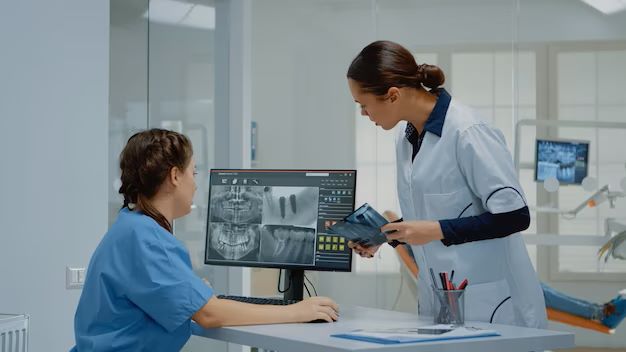
What role do AI diagnostics play in dental treatment planning?
AI diagnostics play a crucial role in designing personalized treatment plans for dental patients. By analyzing a patient's dental images and medical history, AI systems can recommend tailored solutions that cater to individual needs and conditions.
Furthermore, the use of AI enhances treatment outcomes by providing dentists with in-depth analyses and insights. Through AI-powered analysis, dentists can optimize treatment strategies and ensure better patient care.
Despite its advantages, there are challenges and limitations associated with AI in treatment planning. Issues such as data privacy and the need for continuous training of AI models pose hurdles that the dental industry must address to maximize the benefits of AI technology.
How do AI systems aid in the early detection of dental caries?
AI systems are revolutionizing the early detection of dental caries through innovative applications in analyzing x-ray images. By leveraging AI algorithms, dentists can now pinpoint dental caries at their initial stages, allowing for prompt and effective preventive measures.
Moreover, AI-based tools for preventive dental care enable dentists to provide targeted interventions to patients, enhancing oral health outcomes. The improved accuracy and efficiency in caries diagnosis achieved through AI translate to better overall dental care for individuals.
With the continuous advancements in AI technology, the future holds even greater potential for improving caries diagnosis thanks to the integration of artificial intelligence in dental practices.
What are the benefits of using AI in periodontal disease diagnosis?
AI algorithms are playing a vital role in assessing periodontal health by offering precise diagnostics and actionable insights. Dentists can leverage AI tools to diagnose periodontal diseases accurately and devise comprehensive treatment plans that address individual patient needs.
Furthermore, AI contributes to enhancing periodontal disease treatment planning by streamlining workflow processes and improving the overall patient care experience. As AI technology evolves, the potential advancements in AI-based periodontal diagnostics are set to revolutionize periodontal disease management.
How are 3D x-rays revolutionizing dental diagnostics with AI?
The integration of AI in analyzing 3D dental images marks a significant advancement in dental diagnostics. AI algorithms enhance the interpretation of complex 3D x-rays, providing dentists with detailed insights into anatomical structures and dental conditions.
With enhanced imaging capabilities for complex dental cases, AI-powered 3D x-rays enable dentists to create comprehensive treatment plans that prioritize patient care and treatment efficacy. The future of dentistry is being reshaped by AI-enhanced 3D imaging technology, promising improved diagnostic accuracy and treatment outcomes.
A deep learning approach for dental implant planning in cone-beam computed tomography images
A deep learning approach for dental implant planning in cone-beam computed tomography images involves the use of artificial intelligence in dentistry for diagnosis of oral diseases. By diagnosis using diagnostics of 2d and 3d 3d x-rays in dentistry, an ai solution can be used for detecting dental caries, radiographs using analysis of dental radiographs. The diagnosis and treatment planning process in dentistry can benefit greatly from the development of ai and the application of artificial intelligence system for diagnosis and prediction based on dental panoramic radiographs.
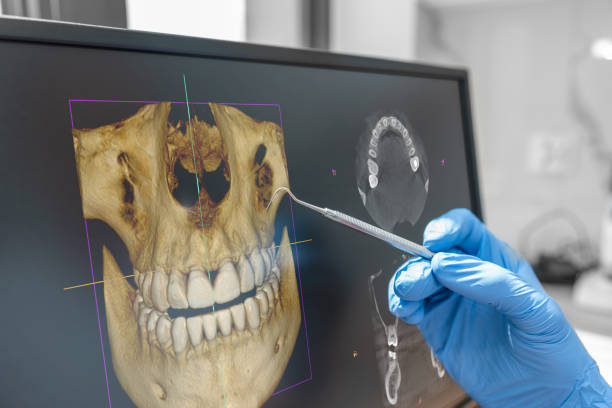
7. Empowering Dentists for Better Patient Care
Dentistry professionals are embracing Artificial Intelligence as the best supporter in providing exceptional patient care. By delegating repetitive tasks to AI systems, dentists can focus more on patient interaction and develop better doctor-patient relationships. Artificial Intelligence streamlines administrative processes, optimizes appointment scheduling, and enables dentists to focus on what matters most: their patients' health.
8. The Rising Influence of Dental Artificial Intelligence
The rise of dental Artificial Intelligence has been monumental, with an increasing number of dental practices adopting this technology to stay at the forefront of oral healthcare. As Artificial Intelligence continues to evolve, we can expect even more sophisticated applications in dentistry, such as Artificial Intelligence-driven virtual reality simulations for dental procedures, Artificial Intelligence-powered smart toothbrushes, and Artificial Intelligence chatbots for patient support.
9. The Future of Dentistry with Artificial Intelligence
Looking forward, the future of dentistry looks extremely promising with the continued development of Artificial Intelligence. Artificial Intelligence-assisted diagnostic-oriented dental technology will continue to advance, allowing for earlier and more precise detection of oral health problems. This proactive approach will encourage more effective preventive care, reduce the incidence of serious dental problems, and promote age-long dental health.
10. One Step Closer to the Future with CranioCatch
Artificial intelligence in dentistry is the use of computer systems in the diagnosis of dental diseases, treatment planning and management. These technologies allow dentists to provide more precise diagnoses and treatment options by analyzing X-ray images and other data. In recent years, artificial intelligence technologies have been rapidly developing and used more in the field of dentistry.
CranioCatch is a formation that emerged with academic studies for the evaluation of dental radiographs with artificial intelligence. As a result of our studies on the evaluation of simple dental findings with artificial intelligence, it was observed that the artificial intelligence models we obtained showed high success. Following this success, steps were taken to develop software that can automatically analyze radiography images and support clinical decisions. This software provides outputs in report format.

Conclusion
In conclusion, the incorporation of Artificial Intelligence in diagnostic dental technology marks a paradigm shift in the field of dentistry. Artificial Intelligence is revolutionizing the field of oral health, from the analysis of dental x-rays to providing personalized care and supporting dentists with unprecedented tools. As Artificial Intelligence technology continues to advance, we can anticipate a future where dental Artificial Intelligence becomes an indispensable aspect of oral health, ensuring brighter smiles and healthier lives for millions of people worldwide. Recognizing the potential of Artificial Intelligence in dentistry is not only a technological breakthrough, but also a commitment to improve quality of life through exceptional oral health care.
Visit our website for detailed information and more blog posts! ⇒ https://www.craniocatch.com/en/
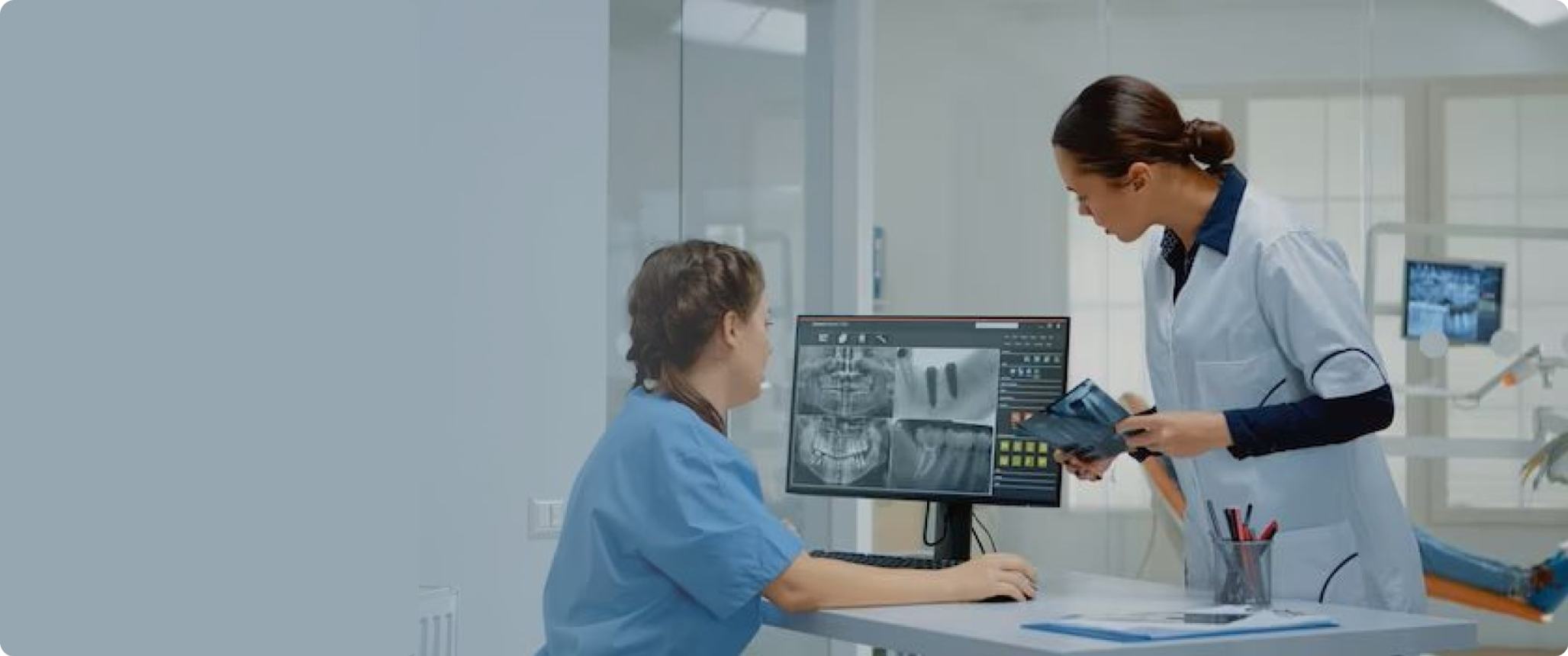

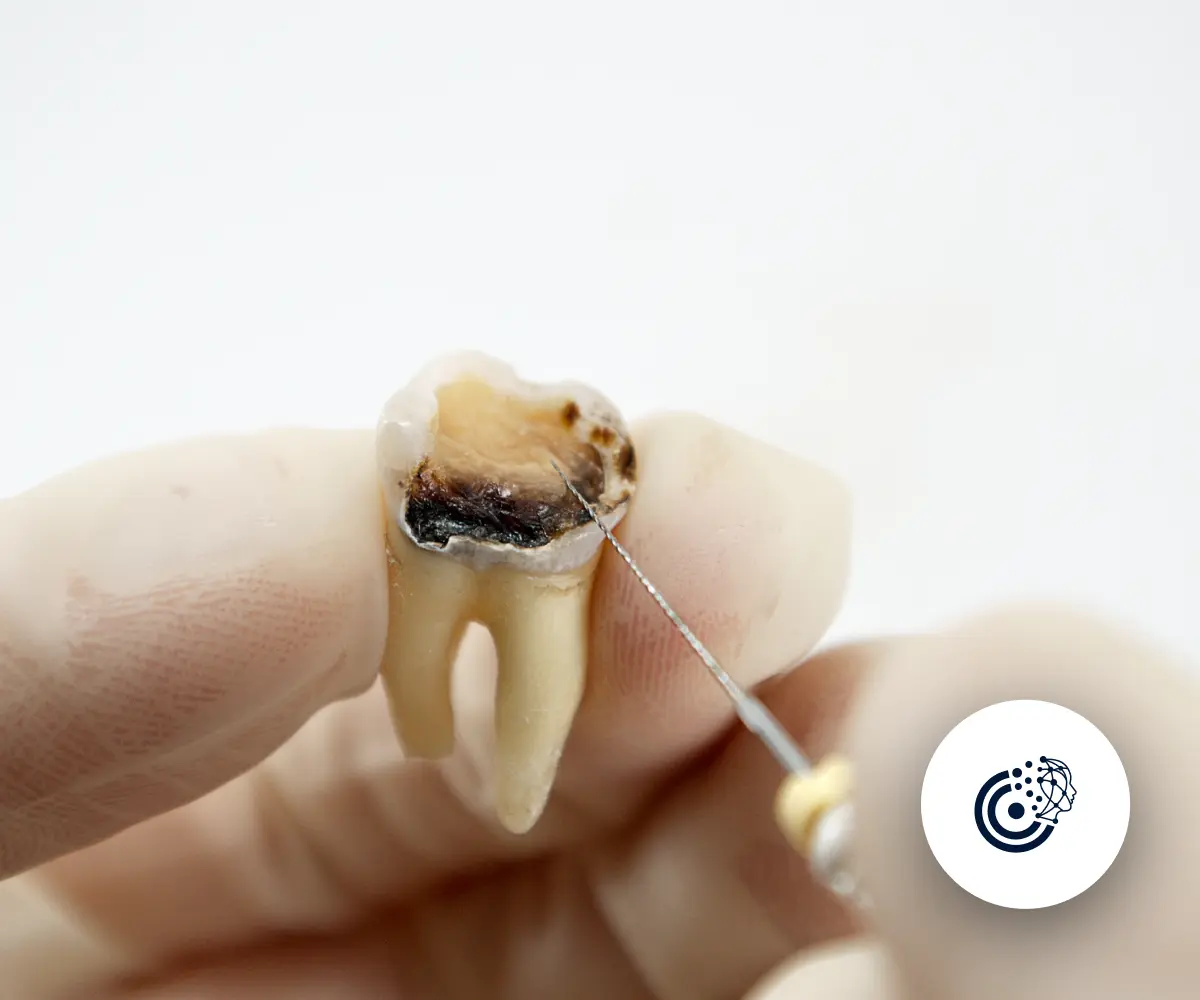
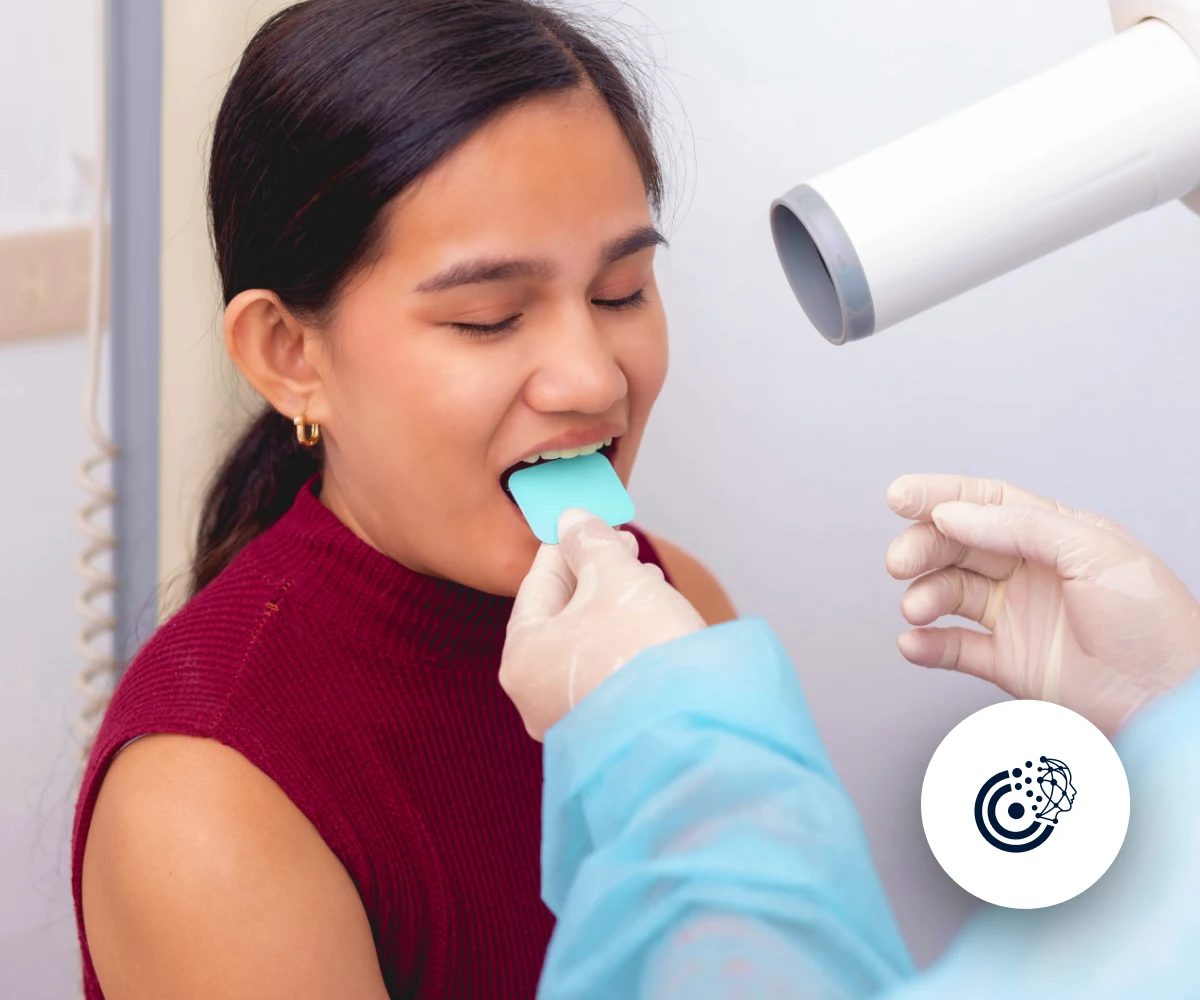
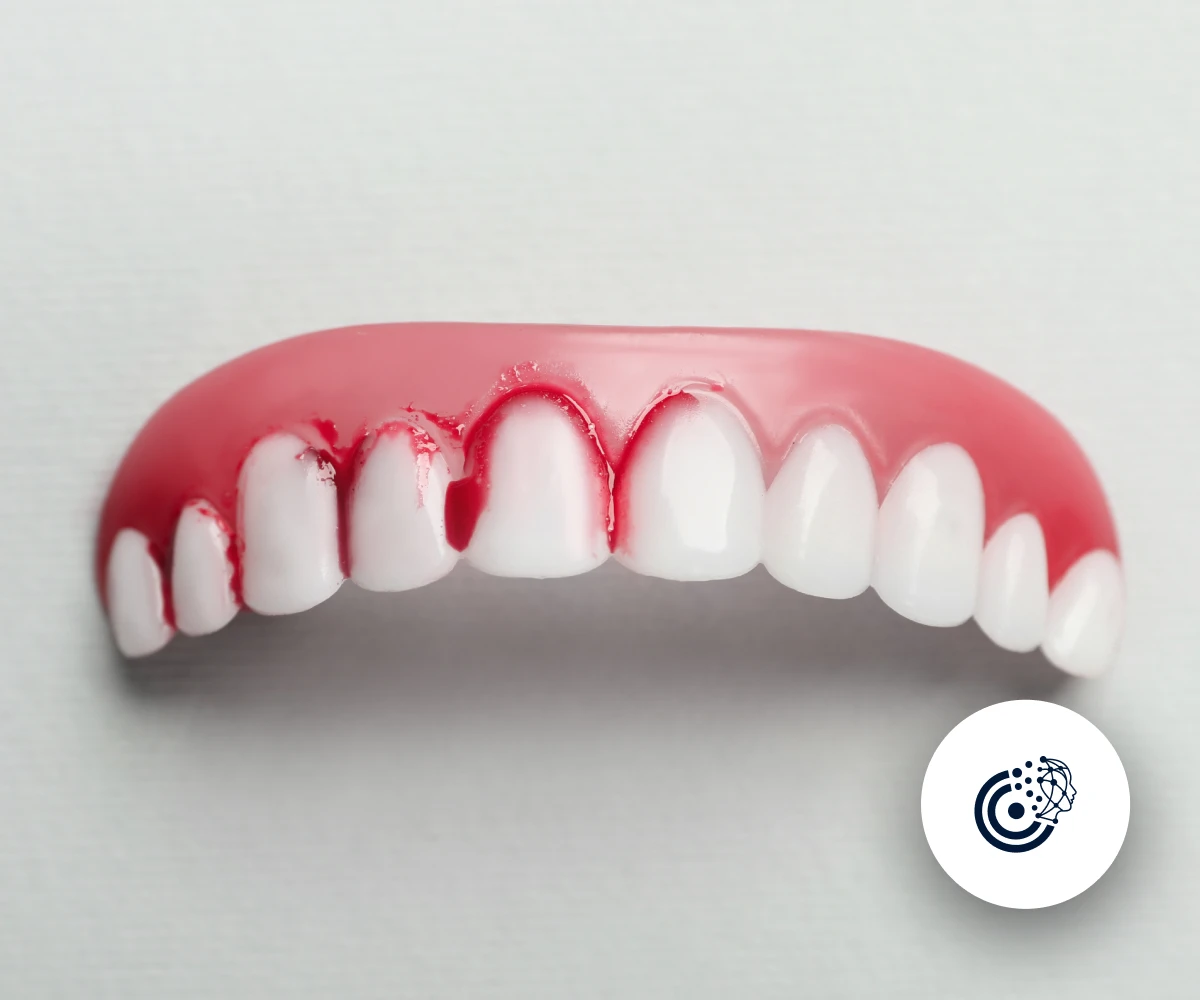
 Contact Us
Contact Us

